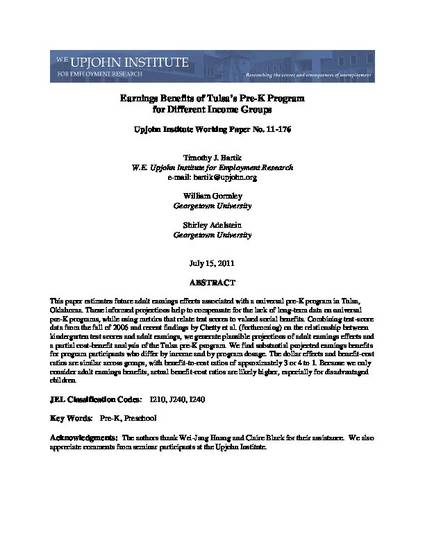
This paper estimates future adult earnings effects associated with a universal pre-K program in Tulsa, Oklahoma. These informed projections help to compensate for the lack of long-term data on universal pre-K programs, while using metrics that relate test scores to valued social benefits. Combining test-score data from the fall of 2006 and recent findings by Chetty et al. (forthcoming) on the relationship between kindergarten test scores and adult earnings, we generate plausible projections of adult earnings effects and a partial cost-benefit analysis of the Tulsa pre-K program. We find substantial projected earnings benefits for program participants who differ by income and by program dosage. The dollar effects and benefit-cost ratios are similar across groups, with benefit-to-cost ratios of approximately 3 or 4 to 1. Because we only consider adult earnings benefits, actual benefit-cost ratios are likely higher, especially for disadvantaged children.
